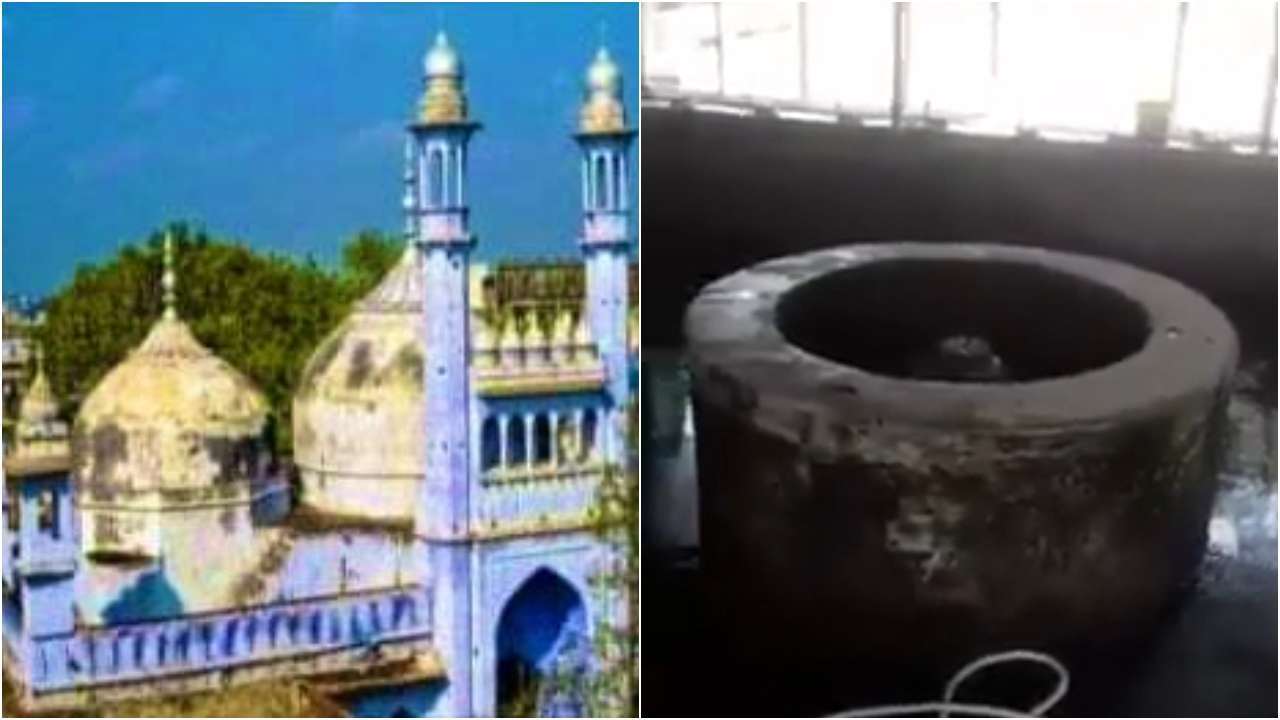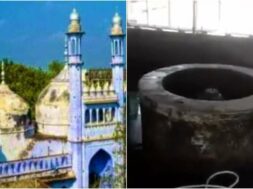
Manas Dasgupta
NEW DELHI, Oct 14: In a setback to the Hindu petitioners, a district court in Varanasi on Friday rejected the Hindu worshippers’ plea seeking ‘scientific investigation’ of the structure claimed to be a ‘Shivling’ found on the Gyanvapi mosque premises.
The court of the senior most district judge A.K. Vishvesha rejected the plea in view of the Supreme Court’s May 17 order to protect the site where the ‘Shivling’ was reportedly found while conducting a survey in the mosque. The Muslim side, however, had maintained that what being claimed as “Shivling” was only a part of a fountain used for “wazoo” before “Namaaz.”
“If carbon dating and ground penetrating radar is permitted and if any damage is caused to the ‘Shivling’, then it would be in violation of the Supreme Court order to protect it and it might also hurt the religious sentiments of the general public,” the Varanasi court said. The advocate of the Hindu petitioners said they would challenge the district court’s order in the Supreme Court. Carbon dating is a scientific process that ascertains the age of an archaeological object or archaeological finds.
Akhlaq Ahmed, representing the Muslim side had said that the plea by the Hindu side is not maintainable as it is against the order of the Supreme Court that stated protecting the structure (which the Muslim side claims to be a fountain and the Hindu side claims to be a Shivling).”
The ‘Shivling’ or relic of Lord Shiva was found earlier this year during a video survey carried out in the Gyanvapi mosque complex on the orders of a lower court in response to a petition by five Hindu women requesting year-long access to pray at a shrine inside the mosque complex. That case is still being heard.
Last month, four of the five Hindu petitioners had requested a scientific investigation, including carbon dating, to establish the age of the “Shivling”. The women claim that ancient idols of Hindu gods and goddesses are located inside the mosque. The mosque committee objected to such an investigation, arguing that the case was about worshipping at a shrine inside the mosque and had nothing to do with its structure. The object being called a “Shivling” is actually a “fountain” for purification rituals by Muslims before prayers, they argued.
Last week, the court asked if the “Shivling” can be made a part of the case and whether a scientific investigation can actually be ordered. Vishnu Shankar Jain, representing the Hindu women, said, “We said two things – that in our prayer we asked for rights to pray before visible and invisible deities inside the mosque complex. The Shivling was earlier covered by water and when the water was removed it became a visible deity and so it is part of the suit,” Mr Jain said.
On September 12, the Varanasi district judge dismissed a challenge by the mosque committee that argued that the case by the Hindu women has no legal standing. Their challenge was rejected on all three counts they cited. The most important of these is the 1991 law, which freezes the status of a place of worship as it existed on August 15, 1947. The petitioners don’t want ownership, just the right to worship, the court ruled.
Earlier this year, a lower court in Varanasi ordered the filming of the centuries-old mosque based on the women’s petition. The videography report, controversially leaked by the petitioners, claimed a “Shivling” was found in a pond used for “Wazoo” or the mandatory purification rituals before Muslim prayers. On September 29, the Hindu side demanded a scientific investigation of the ‘Shivling’ by the Archaeological Survey of India (ASI) and the carbon dating of ‘Argha’ and the area around it. The court had reserved the order in the Gyanvapi Mosque-Shringar Gauri case after hearing both sides’ arguments.
The Gyanvapi mosque, located in Varanasi, the constituency of Prime Minister Narendra Modi, is on the list of mosques that Hindu hardliners believe were built on the ruins of temples. It was one of the three temple-mosque rows, besides Ayodhya and Mathura, which the BJP raised in the 1980s and 90.













